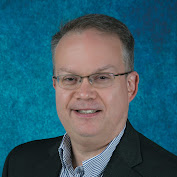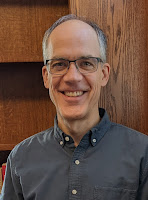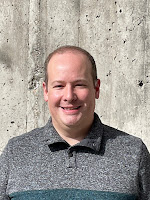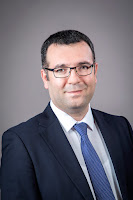Trusted CI, the NSF Cybersecurity Center of Excellence, is excited to
announce the Trusted CI Open Science Cybersecurity Fellows. Eight
individuals with professional interests in cybersecurity have been
selected from a nationally competitive pool. During the year of their
Fellowship, they will receive recognition and cybersecurity professional
development including training and travel funding to
cybersecurity-related events.
The 2022 Trusted CI Open Science Cybersecurity Fellows are:

Data Management Specialist at Northwestern University
Brian
Roland provides Data Management support and consultation for
researchers at Northwestern University. He supports researchers across a
broad spectrum of research disciplines with data workflow design and
leveraging the appropriate data storage and data transfer solutions to
meet their research goals and both federal and institutional compliance
needs. In addition to providing data workflow support, Brian enjoys
working with his colleagues on building out institutional lines of
service that help optimize the data flows involved with researchers'
analysis and data management plans.

Assistant Professor at Cleveland State University
Professor
Charles McElroy earned his PhD from Case Western Reserve University,
(Cleveland, OH) in Information Systems in 2017. There he studied how
diverse scientific teams used sophisticated cyberinfrastructure to
formulate complex arguments. Upon graduation, Professor McElroy won a
national competition sponsored by the Office of the Director for
National Intelligence to conduct research in data science at the Center
for Data-Driven Discovery (CD3) at the California Institute of
Technology (Pasadena, CA). At the conclusion of his IC PostDoc
experience, Professor McElroy won a Fulbright Fellowship to Oxford
University (2019), where he focused on issues related to Cyber-Security.
Professor McElroy is currently a new Assistant Professor in Information
Systems at Cleveland State University. His interests include data
science, AI, machine learning, and how these tools can be applied to
cybersecurity issues.
Garhan Attebury
Lead System Administrator at the University of Nebraska-Lincoln
Garhan Attebury is the lead system administrator within the Holland
Computing Center at the University of Nebraska. His efforts and
interests cover a wide spectrum of research computing areas from local
HPC needs to global computing with involvement in the WLCG and other
distributed platforms. He additionally acts as the networking and
security liaison for HCC and has a strong interest in architecting
solutions that balance enabling research with meeting security and
privacy needs.
Hannah Hiles
Research Project Manager and Product Owner at RENCI
Hannah
Hiles is a research project manager and product owner at the
Renaissance Computing Institute (RENCI). She received her MS in Library
and Information Science from UNC Greensboro; her studies focused on
academic and digital libraries and served as a touchstone for instilling
curiosity about the intersection of people and information. Her
research is centered around UI/UX development, mindful community
engagement, and iterative design of best practices to support
researchers and their research communities in accomplishing shared
goals.

Systems Engineer for HPC/CI in the Office of Information Technology at The University of Texas at Dallas
Joey
is a systems engineer at the University of Texas at Dallas focusing on
CI and Networking. Wearing his CI hat, he primarily serves economists
from around the Federal Reserve Bank System in a partnership to admin
and supports their Big-Tex Cluster. Wearing his networking hat, he
provides networking support and services for the university CI
infrastructure and the university science DMZ, which includes both the
Texas Research and education CyberInfrastructure Services (TRECIS) and
the Global Environment network Innovations (GENI) projects. Wearing his
researcher hat, he works with, supports, and conducts research as a
member of the Open Networking Advanced Research (OpNeAR) Lab and has
also served as a reviewer for the INDIS Workshop since 2020. Joey has
been a member of the IEEE since 2016 and is an Eagle Scout.
Melissa Cragin
Chief Strategist for Data Initiatives in the Research data Services at SDSC/UCSD
Melissa
Cragin is Chief Strategist for Data Initiatives in the Research Data
Services division at the San Diego Supercomputer Center (SDSC), at the
University of California San Diego (UCSD).Prior to joining SDSC, Melissa
was the Executive Director of the Midwest Big Data Hub, based at the
National Center for Supercomputing Applications (NCSA) at the University
of Illinois at Urbana-Champaign (UIUC). Previously, Melissa served for
several years in the Office of the Assistant Director, Directorate of
Biological Sciences at the National Science Foundation (NSF), where she
guided the development of data policy and accelerated community
engagement on research data management and public access. At SDSC,
Melissa works on projects to improve data access and use, and foster the
development of the national data infrastructure ecosystem and related
policy. Melissa has a PhD in information science from the iSchool at
Illinois (UIUC), and a MLIS degree from Rutgers University.

Research Development Strategist with the Strategic Projects and
Research Collaborative (SPARC) at the University of Minnesota
Stephen
Streng is a Research Development Strategist with the Strategic Projects
and Research Collaborative (SPARC) at the University of Minnesota
(UMN). In this role, he helps interdisciplinary and multi-institutional
teams and the UMN system achieve significant impact by providing
competitive intelligence, strategic planning, proposal development, and
project design consultation. Stephen has been involved in cybersecurity
since 2015 when in a previous role at the UMN Food Protection and
Defense Institute (FPDI), he initiated FPDI’s cybersecurity research
program by organizing and facilitating the first Food Industry
Cybersecurity Summit. In 2019, FPDI published his white paper,
Adulterating More Than Food: The Cyber Risk to Food Processing and
ManufacturingMore Than Food: The Cyber Risk to Food Processing and
Manufacturing, which examined the cyber risks to industrial control
systems in food processing and manufacturing industries. Stephen is a
former Department of Homeland Security Analytic Exchange Program (AEP)
participant as a member of the Protecting Sensitive Data and
Intellectual Property topic team, and he currently serves on the UMN
Highly Restricted Data Steering Committee. Stephen continues to consult for FPDI and has an ongoing interest
in operational technology cybersecurity. participant as a member of
the Protecting Sensitive Data and Intellectual Property topic team, and
he currently serves on the UMN Highly Restricted DataSteering Committee.
Stephen continues to consult for FPDI and has an ongoing interest in
operational technology cybersecurity.
Unal Tatar
Assistant Professor at SUNY at Albany
Dr.
Unal Tatar is an assistant professor at the College of Emergency
Preparedness, Homeland Security, and Cybersecurity at the University at
Albany. Dr. Tatar served as the head of the National Computer Emergency
Response Team of Turkey and as an academic advisor at the NATO Center of
Excellence Defense Against Terrorism. Dr. Tatar has three main lines of
research: the economics of cybersecurity and risk management, critical
infrastructure protection and national security, and cybersecurity
capacity building and workforce development. Dr. Tatar’s research has
been funded by NSF, DOD, NSA, ONR, AFRL, NATO, and several foundations.
Dr. Tatar holds a BS in Computer Science, an MS in Cryptography, and a
Ph.D. in Engineering Management and Systems Engineering.
The Fellows will receive training consisting of a Virtual Institute, providing 20 hours of basic cybersecurity training over six months. The training will be delivered by Trusted CI staff and invited speakers. The Virtual Institute will be presented as a weekly series via Zoom and recorded to be publicly available for later online viewing. Travel support is budgeted (during their first year only) to cover fellows’ attendance at the NSF Cybersecurity Summit, PEARC, and one professional development opportunity agreed to with Trusted CI. The Fellows will be added to an email list to discuss any challenges they encounter that will receive prioritized attention from Trusted CI staff. Trusted CI will recognize the Fellows on its website and social media. Fellowships are funded for one year, after which the Trusted CI Fellows will be encouraged to continue participating in Trusted CI activities in the years following their fellowship year. After their training in the Virtual Institute, Fellows, with assistance from the Trusted CI team, are expected to help their science community with cybersecurity and make them aware of Trusted CI for complex needs. By the end of the year, they will be expected to present or write a short white paper on the cybersecurity needs of their community and some initial steps they will take (or have taken) to address these needs. After the Fellowship year Trusted CI will continue to recognize the cohort of Fellows and give them prioritized attention. Over the years, this growing cohort of Fellows will broaden and diversify Trusted CI’s impact.
About the Trusted CI Fellows Program
Trusted CI serves the scientific community as the NSF Cybersecurity Center of Excellence, providing leadership in and assistance in cybersecurity in the support of research. In 2019, Trusted CI establish an Open Science Cybersecurity Fellows program. This program establishes and support a network of Fellows with diversity in both geography and scientific discipline. These fellows will have access to training and other resources to foster their professional development in cybersecurity. In exchange, they will champion cybersecurity for science in their scientific and geographic communities and communicate challenges and successful practices to Trusted CI.
Fellows come from a variety of career stages. They demonstrate a passion for their area, the ability to communicate ideas effectively, and a real interest in the role of cybersecurity in research. Fellows are empowered to talk about cybersecurity to a wider audience, network with others who share a passion for cybersecurity for open science and learn key skills that benefit them and their collaborators.




